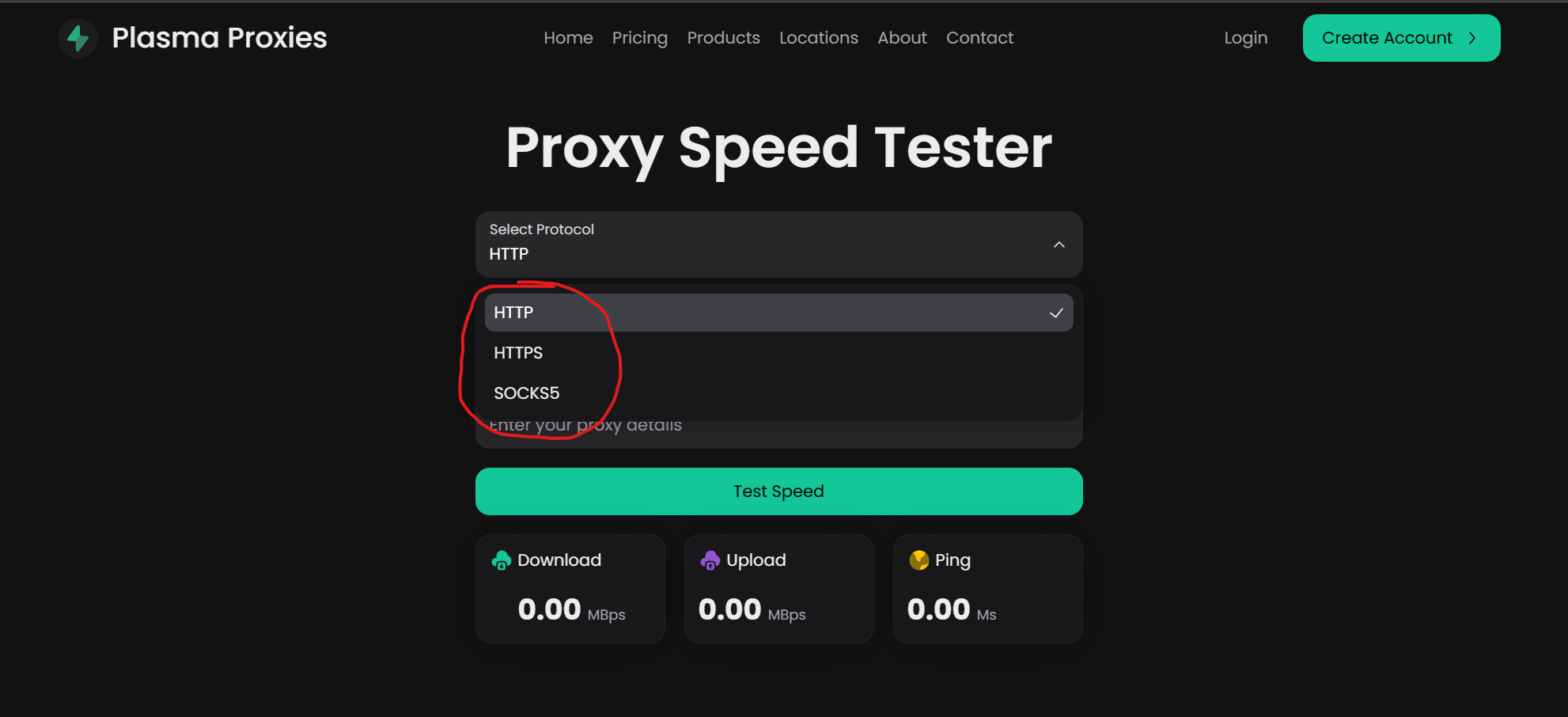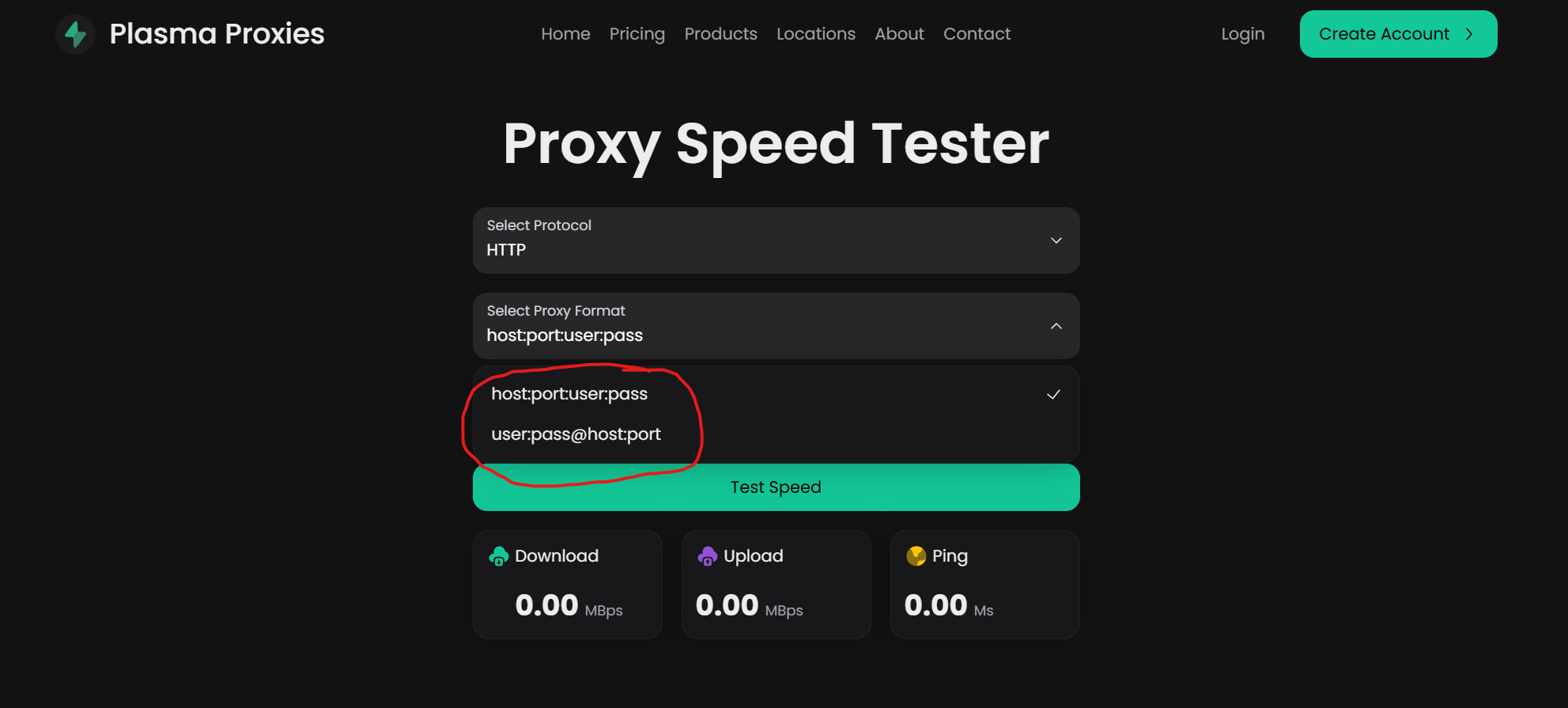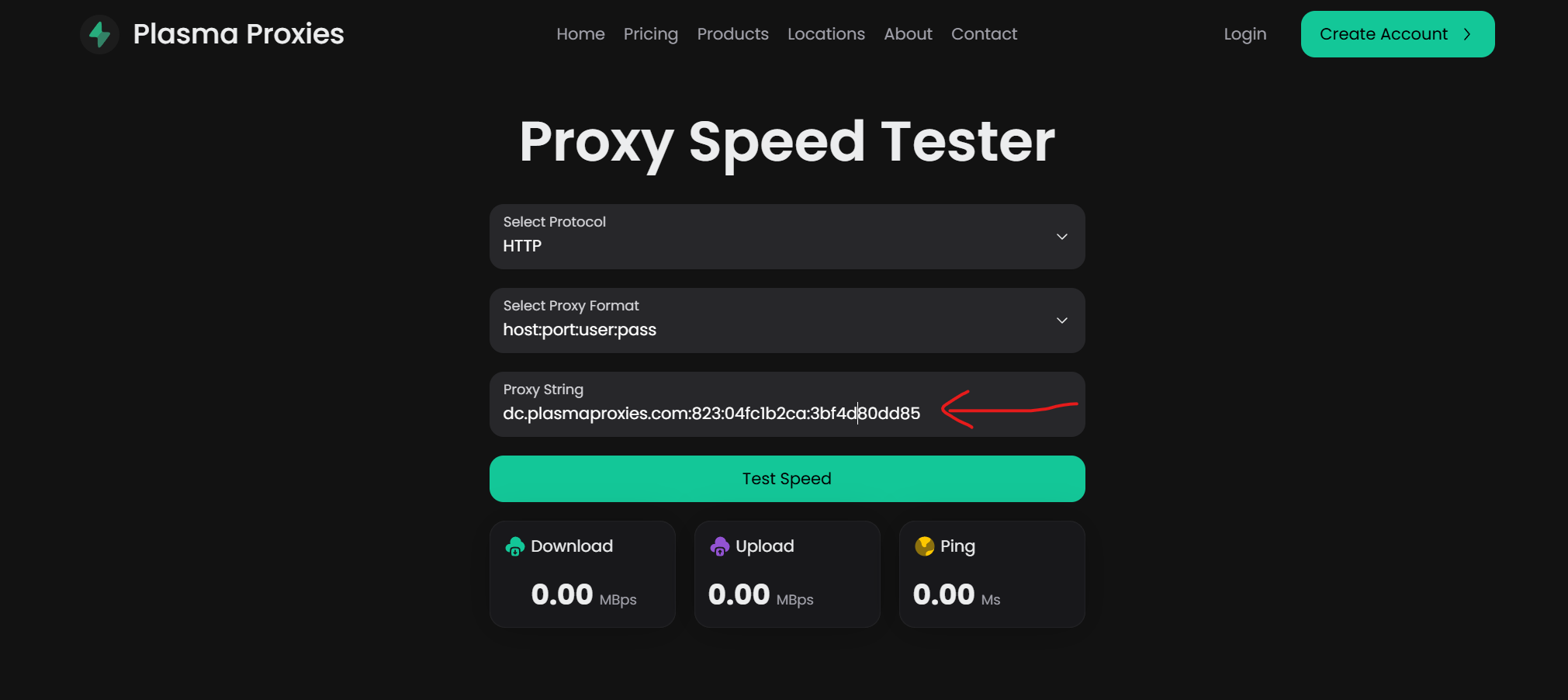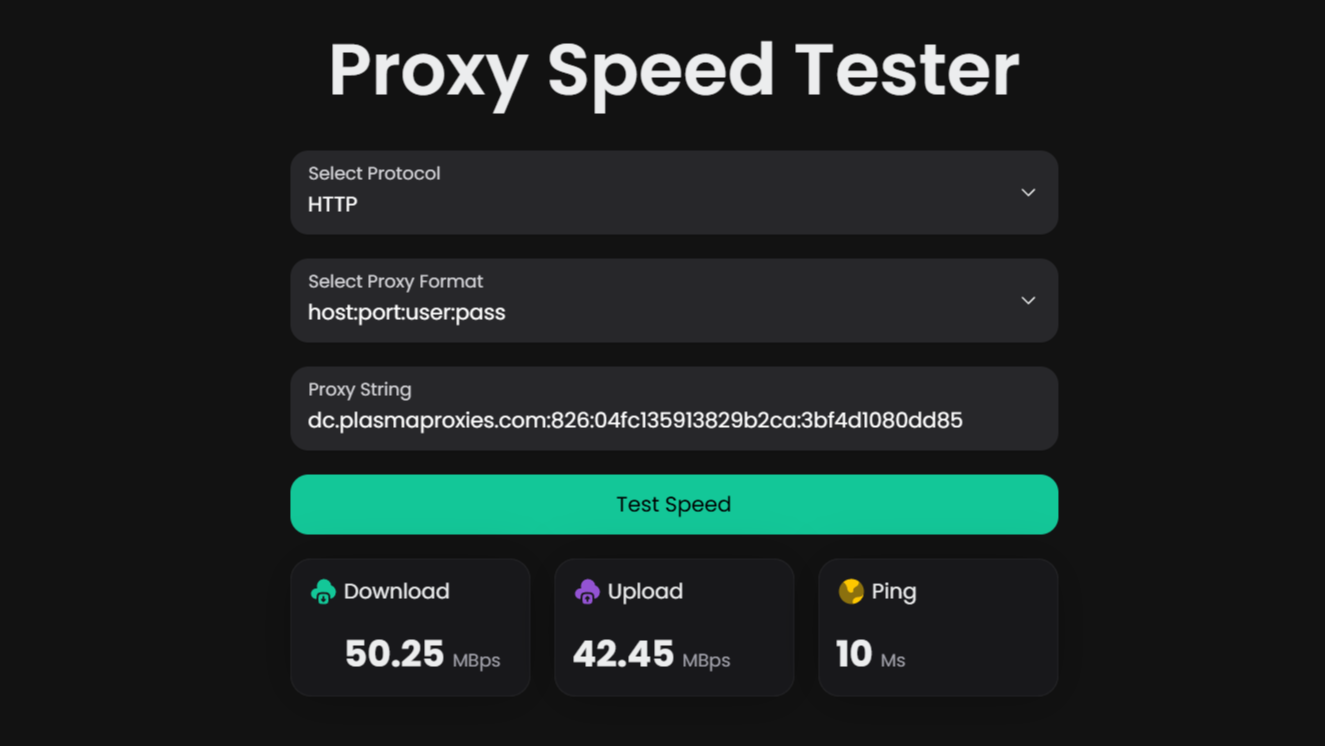Proxy Speed Tester
Download
0.00 MBps
Upload
0.00 MBps
Ping
0.00 Ms
Need to test proxy speed quickly? Our Proxy Speed Tester is the ultimate online proxy speed checker that delivers accurate download, upload, and ping measurements in seconds. Simply select your protocol, enter your details, and our speed test through proxy will show exactly how your proxy server performs. Whether you're troubleshooting slow connections or comparing providers, this free proxy speed test tool gives you the reliable data you need without any technical hassle.
Supported Protocols:
- HTTP - Standard web proxy protocol
- HTTPS - Secure encrypted proxy connections
- SOCKS5 - Versatile proxy protocol for various applications
Supported Proxy Formats:
- host:port:user:pass - Standard format with credentials
- user:pass@host:port - Alternative format for authentication
Explore Our Proxy Plans
Bandwidth
1 GB
Duration
1 Month
10M+ IP Pool
195+ Countries
99.9% Uptime
24/7 Support
Upgrade/Renew support
Bandwidth
5 GB
Duration
3 Months
10M+ IP Pool
195+ Countries
99.9% Uptime
24/7 Support
Upgrade/Renew support
Proxy Speed Tester Use Cases
Test Proxy Speed and Performance
Accurately measure download/upload speeds, latency, and response times when connecting through proxy servers compared to direct connections for optimal web scraping efficiency.
Compare Proxy Providers and Services
Evaluate multiple proxy services side-by-side with detailed metrics to determine which provider offers the best speed, reliability, and value for your specific web scraping or data collection needs.
Troubleshoot Proxy Performance Issues
Quickly identify whether slow connections are caused by proxy configuration, IP quality, or other network factors by running comprehensive comparative tests with and without proxy routing.
Optimize Proxy Configurations for Web Scraping
Test how different proxy types (residential, datacenter, mobile) perform for specific tasks such as web scraping, data extraction, or accessing geo-restricted content, allowing you to fine-tune settings for maximum performance.
Proxy Speed Comparison
| Proxy Type | Average Speed Reduction | Latency Impact | Best For | Typical Use Cases |
|---|---|---|---|---|
| HTTP Proxy | 10-20% | Moderate | Web browsing | Basic web surfing, content filtering |
| HTTPS Proxy | 15-25% | Moderate | Secure web browsing | Secure website access, basic encryption |
| SOCKS4 Proxy | 5-15% | Low | TCP applications | Gaming, IRC, FTP |
| SOCKS5 Proxy | 10-20% | Low-Moderate | TCP/UDP applications | Streaming, P2P, gaming |
| Residential Proxy | 20-40% | Moderate-High | Location-specific access | Accessing geo-restricted content |
| Datacenter Proxy | 5-10% | Very Low | High-speed tasks | Data scraping, automation |
| VPN (for comparison) | 15-30% | Moderate | Privacy-focused browsing | Complete traffic encryption |
| Rotating Proxy | Varies (20-50%) | High | Web scraping | Data collection, price monitoring |
| Shared Proxy | 25-45% | High | Budget solutions | Basic anonymity |
| Dedicated Proxy | 5-15% | Low | Performance-critical tasks | Consistent performance needs |
Steps to use proxy speed tester
Step 1
Select the protocol you want to test. You can choose from HTTP, HTTPS, or SOCKS5 protocols.

Step 2
Select the proxy format you want to test. You can choose from username:password@host:port or host:port:username:password formats.

Step 3
Enter the proxy string in the input field.

Step 4
Click the 'Test Speed' button to check the download speed, upload speed, and ping of the proxy.

Frequently Asked Questions
Find answers to common questions about our proxy speed tester